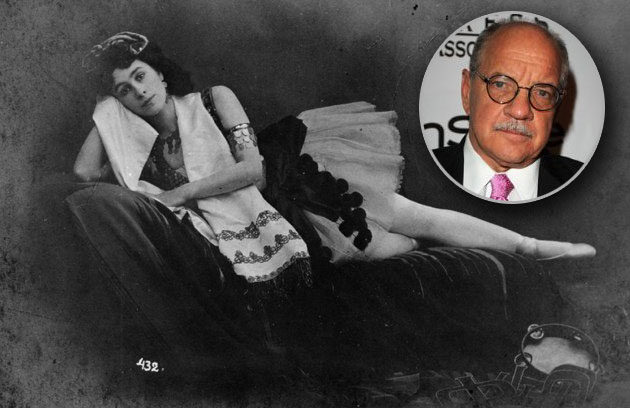Paul Schrader Going to Work For the Kremlin (Really)

Go ahead and tell me you didn't see this coming: The Russian government is underwriting a biopic of the late-19th/early 20th-century ballerina and tsarist "femme fatale" Mathilde Kschessinska, and its cultural ministers have enlisted Paul Schrader to write the screenplay for "an internationally acclaimed director to be announced soon." OK, fine — I didn't see it coming, either. Read on for full details, by which I mean an explanation from all involved.
I mean, between Raging Bull and Mishima, the guy knows from international historical figures of varying renown. But this... Anyway, if it sounds unprecedented, that's because it is. Anyone have any casting suggestions?
============
PAUL SCHRADER PENS BIOPIC OF NOTORIOUS RUSSIAN BALLERINA
Acclaimed screenwriter-director will write the story of Kschessinska, legendary prima ballerina and mistress to the last Russian Tsar, for film financed by Kremlin-backed Culture & Arts Fund
May 17, 2012, Los Angeles — Paul Schrader has signed on today to write the story of the ultimate femme fatale, “prima ballerina assoluta” Mathilde Kschessinska, for Russian entertainment powerhouse Vladimir Vinokur and his partner the Russian ballet impresario Vladislav Moskalev, in collaboration with American producers David Weisman and Anatoly Davydov. The film is financed by the V. Vinokur Fund for the Support of Russian Culture & Arts under the auspices of the Kremlin. Never before has a renowned American screenwriter written a Russian film about an iconic figure from Russian history. The film will be shot in English with mixed Russian and American Star cast, and will be helmed by an internationally acclaimed director to be announced soon.
“Kschessinska’s life is a powerful metaphor for Russian culture and evokes the best of Russian arts,” said Schrader. “She was a first native prima ballerina in the country that saw the highest achievement in that art form. She was not only a witness to the critical period of Russian history, she was a player in that history, only to be thrown aside.”
As the Russian Empire was falling apart, a tiny ballerina caused scandal, heartbreak, and intrigue among the royal family. Kschessinska played mistress to at least four aristocratic men who controlled the crumbling Romanov dynasty, including Russia’s last Tsar, Nicholas II. Rising from poverty, through her extraordinary gift for ballet, Kschessinska lived a life of mind-boggling luxury during a time of monumental despair and chaos. Despite her relentless ambition and charismatic power, she never got what she really wanted. Although her son certainly had Romanov blood, his paternity remained in dispute—and her dream to become mother of the Tsar would never be realized—due to revolution, murder, and unrequited love.
“Kschessinska’s story gives me an exciting opportunity to create historical fiction not only through direct narrative—but also through the ballets she danced and defined,” Schrader continued. “Oftentimes, the most interesting perspectives on history come from those seemingly off to the side but actually in the center—its artists.”
“Kschessinska was worshipped and reviled,” said Weisman. “Nicknames such as ‘Black-eyed She-Devil of the Imperial Ballet’ and ‘Mathilde the Magnificent’ echo the seething jealousy and boundless admiration Kschessinska provoked during her time. Having narrowly escaped the Bolshevik bloodbath, for fifty years she taught ballet in Paris where she died only a few months before her hundredth birthday, in 1971.”
“Kschessinska’s life begins in the world of Imperial St Petersburg—Russia's window on the West—where Russian culture attained arguably the highest achievements in both lyric epic and in the novel,” Schrader added. “I'll draw on all that to explore the inner-life of Kschessinska at the same time I explore the splendor of Russian culture. Russia, which like the Romanov imperial eagle looks both east and west, is uniquely positioned to take a dominant role in the renaissance of global cinema.”
“This project is not just about making a movie for the international market; It is a window into true understanding of the Russian soul,” said Moskalev.
###
